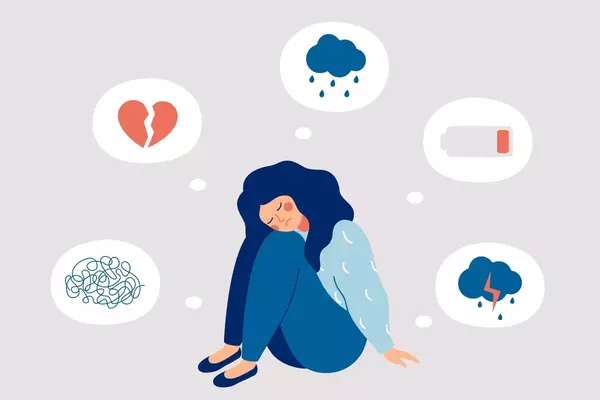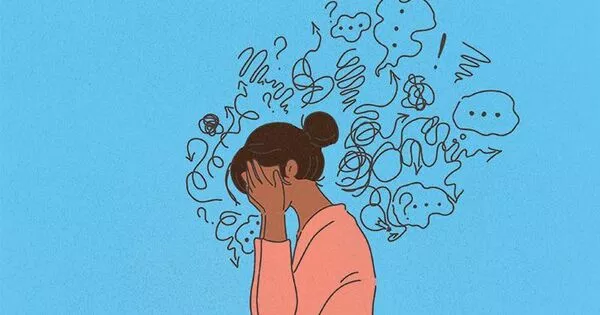It is well understood that social support can help to mitigate the impact of genetic risk factors for depression. While genetics do play a role in an individual’s susceptibility to depression, research suggests that environmental factors, such as social support, can alter the expression of these genetic factors.
Reaching out to support someone who is stressed is always a good idea. A new study suggests that support may be especially important for people whose genetic makeup predisposes them to depression. The study shows the importance of social support in buffering the risk of developing depression symptoms in general, using data from two very different groups of people under stress: new doctors in the most intense year of training, and older adults whose spouses recently died.
Reaching out to support someone who is stressed is always a good idea. A new study suggests that support may be especially important for people whose genetic makeup predisposes them to depression.
The study uses data from two very different groups of people under stress to show the importance of social support in buffering the risk of developing depression symptoms in general, using data from two very different groups of people under stress: new doctors in their most intense year of training and older adults whose spouses recently died. The greatest effect, however, was seen in those with the most genetic variation which increased the risk of depression.
We hope these findings, which incorporate genetic risk scores as well as measures of social support and depressive symptoms, illuminate the gene-environment interactions and specifically the importance of social connection in depression risk.
Jennifer Cleary
The study employs a polygenic risk score, which is based on decades of research into which tiny variations in specific genes are linked to depression risk. In comparison to those in the study who had low depression polygenic risk scores, doctors and widows with higher risk scores had higher rates of depression after losing social support, but also lower rates of depression when they gained social support during stressful times.
A University of Michigan team’s study, published in the American Journal of Psychiatry, suggests that more could be done to target social support to those who can benefit the most.
Genes, stress and social connection
“Our data show wide variability in the level of social support individuals received during these stressful times, and how it changed over time,” said first author Jennifer Cleary, M.S., a psychology doctoral student at U-M who is doing her research with senior author Srijan Sen, M.D., Ph.D., of the U-M Medical School. “We hope these findings, which incorporate genetic risk scores as well as measures of social support and depressive symptoms, illuminate the gene-environment interactions and specifically the importance of social connection in depression risk.”

Sen, the director of the Eisenberg Family Depression Center and a professor of psychiatry and neuroscience, adds that while genetic research uncovers more of the DNA variants associated with depression vulnerability, understanding how that variation leads to depression is critical.
“Further understanding of the different genetic profiles associated with sensitivity to loss of social support, insufficient sleep, excessive work stress, and other risk factors could help us develop personalized guidance for depression prevention,” he added. “In the meantime, these findings reaffirm how important social connections, social support, and individual sensitivity to the social environment are as factors in wellbeing and preventing depression.”
Different populations, similar patterns
The new study used data from two long-term studies that both capture genetic, mood, environment and other data from populations of participating individuals. One is the Intern Health Study, which enrolls first-year medical residents (also called interns) around the United States and beyond, and which Sen directs. The other is the Health and Retirement Study, based at the U-M Institute for Social Research and funded by the National Institute on Aging.
The data for the new paper came from 1,011 interns training at hospitals across the country, nearly half of whom were female, and from 435 recently widowed individuals, 71% of them women, who had data available from surveys conducted before and after their spouses died.
In the interns, as Sen and his team have shown in previous work, depressive symptoms increased dramatically (126%) during the stressful year of training that includes long and irregular work hours – often in environments far from friends and family.
In the widows and widowers, depressive symptoms increased 34% over their pre-widowhood scores. This correlates with past research showing loss of a spouse can be one of the biggest stressors in a person’s life, Cleary said.
A crossover effect
The depression symptom findings were then combined with each person’s polygenic risk score for depression, as well as their individual responses to questions about connections with friends, family, and other social supporters.
The majority of the interns lost social support from their pre-internship days, which fits with the common experience of leaving medical school and moving to a new environment where they may not know anyone. Interns with the highest polygenic risk scores who also lost social support had the highest scores on depression symptom measures later in the stressful intern year.
Those with the same high level of genetic risk who received social support, on the other hand, had significantly lower depressive symptoms. In fact, regardless of social support, it was lower than even their peers with low genetic risk. The researchers refer to this as a “crossover effect.”
Unlike the interns, some widowed people reported an increase in social support following the death of their spouse, possibly because friends and family reached out to offer assistance or just a listening ear. However, the crossover effect was visible in them as well. Widows with a high genetic risk for depression who received social support experienced a much smaller increase in depressive symptoms than their peers with a similar genetic risk who did not receive social support after the death of a spouse.
There were also some widows who lost social support or didn’t experience a change in support, and whose depressive symptoms didn’t change. Cleary notes that in future work, it will be important to look at this group’s history in light of any caregiving they may have done for a spouse with a long-term illness. The team also hopes that other researchers will study this same interaction of genetic risk, stress and social support in other populations.
Meanwhile, Cleary and Sen advise anyone going through difficult times, or watching a friend or relative go through difficult times, to reach out and maintain or strengthen social connections. They point out that doing so can benefit both the person under stress and the person reaching out to them.
Reducing the person’s ongoing stress, whether at work, school, after a personal loss, or in family situations, can be critical. Individual and group therapy is an important option for those who have developed depression or other mental health concerns, even though the study did not examine the role of professional mental health help.





